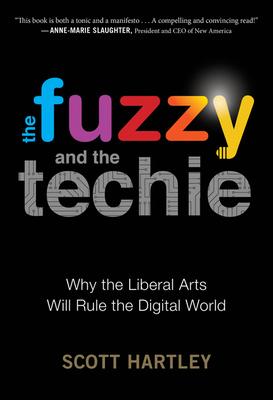This Financial Times Business Book of the Month from a leading venture capitalist offers a counterintuitive look at what skills are necessary in the age of AI.
Finalist for the 2016 Financial Times/McKinsey Bracken Bower Prize
"Scott Hartley artfully explains why it is time for us to get over the false division between the human and the technical." --Tim Brown, CEO of IDEO and author of Change by Design
Scott Hartley first heard the terms fuzzy and techie while studying political science at Stanford University. If you majored in humanities or social sciences, you were a fuzzy. If you majored in computer or hard sciences, you were a techie. While Silicon Valley is generally considered a techie stronghold, the founders of companies like Airbnb, Pinterest, Slack, LinkedIn, PayPal, Stitch Fix, Reddit, and others are all fuzzies--in other words, people with backgrounds in the liberal arts.
In this brilliantly counterintuitive book, Hartley shatters assumptions about business and education today: learning to code is not enough in the age of AI. Rote and routine tasks may go to machines, but that is exactly why the soft skills taught through the liberal arts--curiosity, communication, and collaboration, along with an understanding of ethics and psychology--are essential in the future of work. It's the humanities, and the liberal arts, that give humans our comparative advantage against machines. Fuzzies, rather than techies, have the essential skills ready to shape and define our future of jobs, robotics, artificial intelligence, and machine learning. This understanding of ethics and grounding in humanity is no longer an academic nice-to-have; it is the essential skill in the future of work.
For anyone doubting whether a well-rounded liberal arts education is practical in today's era of artificial intelligence, Hartley's work will come as an inspiring revelation for the future of work.
